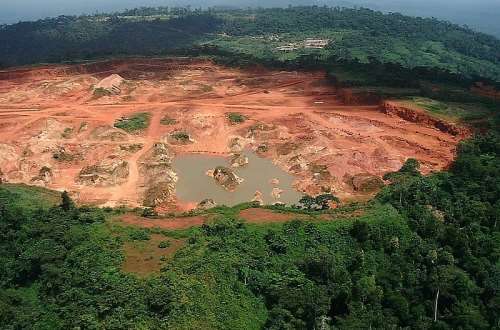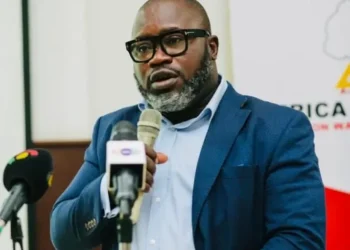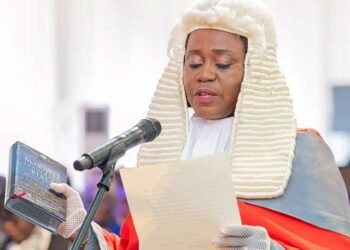The recent galamsey protest organized by the Fix The Country Movement has reignited public debate over the government’s handling of illegal mining and its devastating impact on Ghana’s environment.
Political activist and lawyer, Oliver Mawuse Barker-Vormawor, speaking after the protest, said the march was a direct message to the government to honor the promises it made to Ghanaians, especially during the campaign period.
According to Barker-Vormawor, the protest was not just about illegal mining but also about accountability.
“It’s all about holding the government to its promises and things that it has said, because in many respects, we want this to be a reminder that we haven’t forgotten the promises that were made leading to the elections, the positions taken, many of which we have seen the government flake on.
“The reason why we march and we have fought for so long for the citizens’ right to march is to tell the government that you are slacking…”
Oliver Mawuse Barker-Vormawor
Barker-Vormawor stressed that Ghana is dealing with an environmental disaster on a scale never experienced before, driven by the destructive effects of illegal mining.
He noted that the government’s response to the crisis must be handled in a way that builds and sustains public trust.
The activist further condemned the government for failing to honor crucial promises, pointing to its pledge to repeal LI 2462 within 120 days, a commitment that was ultimately reversed instead of being fulfilled.
He argued that such actions send negative signals about the government’s seriousness in addressing the issue.
According to him, the government’s body language affects the pace at which other institutions take action.

Barker-Vormawor also raised concerns over the deportation of foreign nationals, particularly Chinese citizens, who are caught engaging in galamsey.
Instead of prosecuting these individuals, he said, the government sends them back to their home countries, further eroding public trust. “The deportation of Chinese is again a credibility dent.”
These lapses, he noted, leave many Ghanaians questioning the government’s commitment to fighting illegal mining, which continues to destroy rivers, forests, and farmlands across the country.
Galamsey’s Economic and Political Stakes
Oliver Barker-Vormawor also suggested that the government’s hesitancy to take strong action stems from its economic difficulties.
He referenced comments made by Finance Minister Ato Forson, who sought to suggest that revenue from illegal mining has been used to stabilize the economy.
“I think that a government that was cash-pressed coming in, where you’re close out of the bond market, you’re not able to raise financing, sees Gold Board and sees the ability to raise this as the lifeline of your economic policy. Then that becomes your approach, and you’re worried then about whether or not taking any step might disrupt that.”
Oliver Mawuse Barker-Vormawor

This, he argued, has led the government to prioritize short-term economic survival over long-term environmental consequences.
He warned that how the Mahama administration handles galamsey will be a defining factor of its legacy. “I mean, in the same way that Dumsor defined the first one.”
The activist also highlighted the growing role of young people in Ghana’s environmental activism.
Traditionally, he said, youth activism was limited to university campuses, but social media platforms like Twitter have expanded this movement to a broader audience.
“We have been able to move that onto Twitter and to folks who are no longer in the universities. And so we are building an ecological movement among young people who are more ecologically conscious.”
Oliver Mawuse Barker-Vormawor

He commended organizations such as A Rocha Ghana for their continued efforts in keeping environmental issues at the forefront of public discourse.
Barker-Vormawor warned that even if the government succeeds in stabilizing the economy and strengthening the cedi, the galamsey issue will remain a political liability for the President.
“Even if the cedi were to go to one or six to the dollar, the Galamsey question is not going to leave the President. It’s going to continue to haunt him.”
Oliver Mawuse Barker-Vormawor
Meanwhile, the Fix the Country Movement’s protest signals growing public frustration and reflects a broader demand for decisive action to stop illegal mining.
As the crisis deepens, President Mahama faces increasing pressure to choose between short-term economic gains and the long-term environmental health of the nation.
READ ALSO: Iranian President Slams Israeli Attacks In UNGA Address























